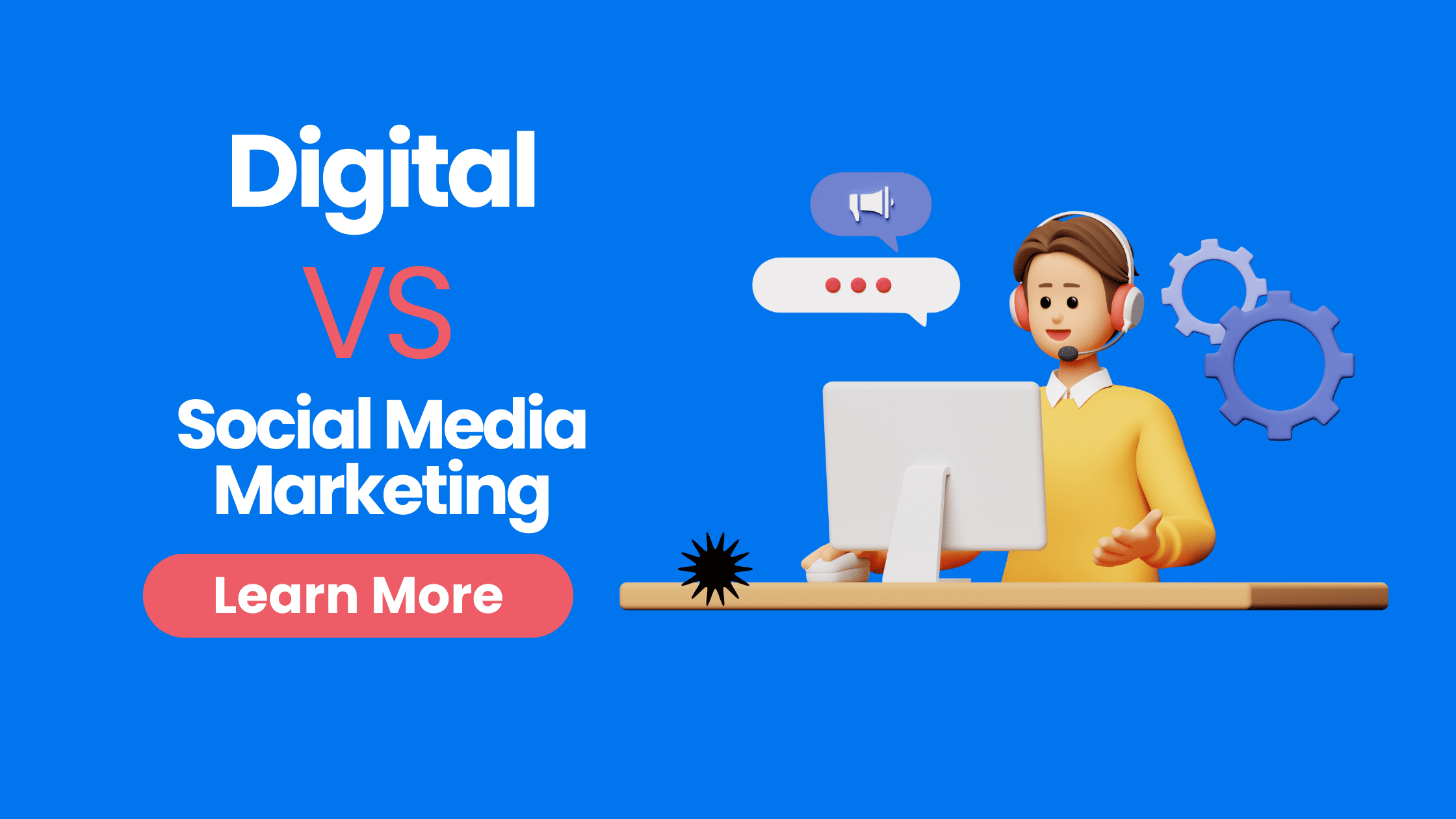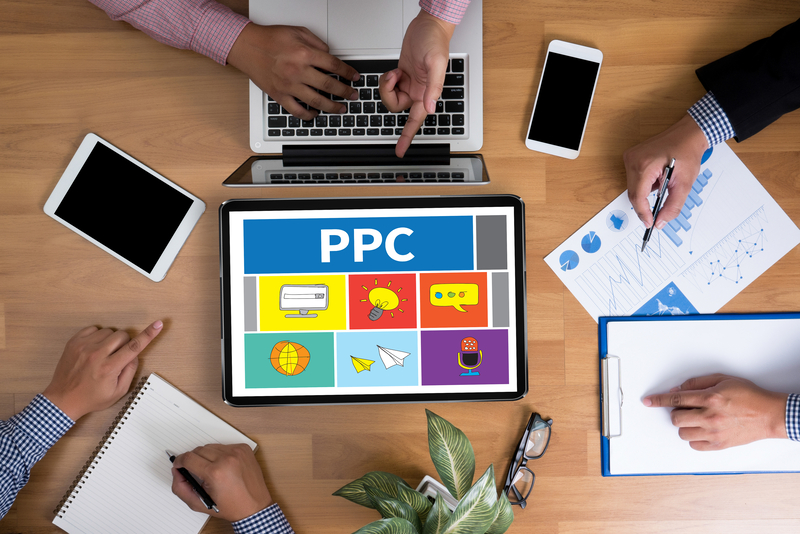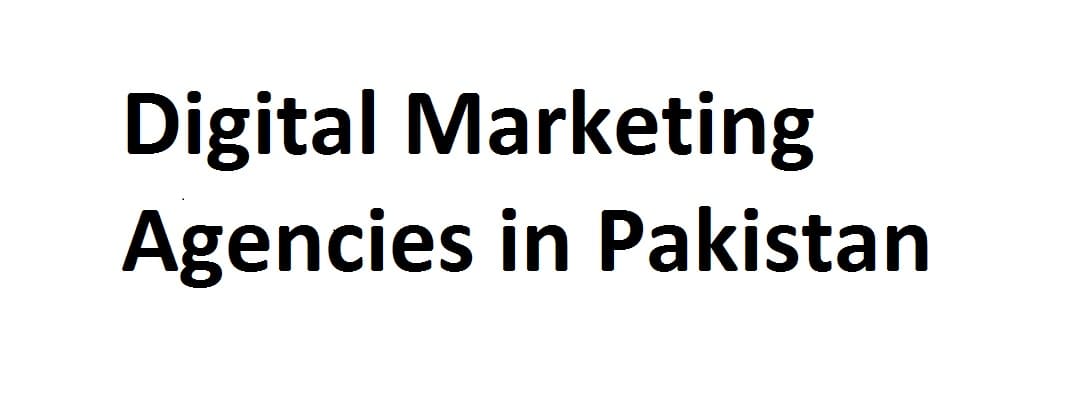Summary
Understanding the difference between digital marketing and social media marketing helps businesses build effective strategies. Learn how both work, when to use them, and how Bhatti Marketing can guide your brand toward online success
Introduction
In today’s fast-paced online world, understanding the difference between digital marketing and social media marketing is essential. While these two strategies are closely related, they serve different purposes and use different tools. If you’re confused about which to focus on for your business, don’t worry—we’ve got you covered.
At Bhatti Marketing, we specialize in both approaches and know how to blend them for maximum impact. Let’s break down both strategies, compare their strengths, and see how they can grow your brand online.
What is Digital Marketing?
Definition & Scope
Digital marketing is an umbrella term for all marketing efforts using digital channels to connect with potential customers. It includes everything from Google Ads to email newsletters and SEO optimization.
Common Channels Include:
- Search Engine Optimization (SEO)
- Pay-Per-Click (PPC)
- Email Marketing
- Content Marketing (Blogs, Infographics)
- Display Ads
- Affiliate Marketing
💡 Example:
A company using Google Ads to attract traffic to its landing page or optimizing blog posts to rank on search engines is using digital marketing.
What is Social Media Marketing?
Definition & Scope
Social media marketing is a subset of digital marketing that uses social platforms to build a brand, engage followers, and drive website traffic or conversions.
Popular Platforms:
Types of Content:
- Reels & Stories
- Memes & Images
- Live Sessions
- Giveaways & Polls
- User-Generated Content
Example:
Running a product giveaway on Instagram and using hashtags to boost reach is a form of social media marketing.
Core Differences Between Digital Marketing and Social Media Marketing
Here’s a breakdown of how digital and social media marketing differ across several areas:
| Aspect | Digital Marketing | Social Media Marketing |
|---|---|---|
| Definition | Broad online marketing using all digital tools | Focused on promotion through social platforms |
| Channels | SEO, PPC, email, websites, mobile apps | Facebook, Instagram, LinkedIn, TikTok, Twitter |
| Goal | Drive traffic, generate leads, increase conversions | Build engagement, brand awareness, and follower base |
| Content Style | Long-form blogs, email copy, banners, landing pages | Short videos, memes, captions, stories |
| Engagement | Limited interaction (website visits, email clicks) | Real-time interaction (likes, shares, comments) |
| Analytics | Traffic, bounce rate, CTR, ROI | Likes, reach, followers, engagement rate |
| Budget | Varies—depends on platform and objective | Can start with zero; grows with paid ads |
| Best For | Long-term visibility and lead nurturing | Community building and real-time customer service |
Which One Should You Choose?
Both strategies are effective, but choosing depends on your business goals.
Choose Digital Marketing if:
- You want long-term growth and website traffic
- You’re focused on SEO and paid search
- You offer services or products that need detailed information
Choose Social Media Marketing if:
- You want to build a community
- Your products are visual or trendy (e.g., fashion, food)
- You need real-time feedback and customer interaction
How Digital and Social Media Marketing Work Together
Integration Strategy
You don’t have to choose one over the other. The most successful brands integrate both strategies for broader online presence.
- Use SEO to rank blog posts → Share them on Facebook or LinkedIn
- Run PPC ads → Retarget users on Instagram
- Collect emails from social followers → Send newsletters
Cross-Promotion Examples:
- Sharing YouTube videos via Instagram stories
- Running Facebook ads that lead to optimized landing pages
- Promoting SEO-driven blog posts through LinkedIn
At Bhatti Marketing, we believe in creating a 360-degree digital presence—connecting search, social, and content for powerful results.
Real-Life Case Studies by Bhatti Marketing
Case 1: Digital Marketing Success
A Lahore-based tech company approached us for lead generation. We created a Google Ads campaign paired with a blog content strategy. Within 3 months, traffic increased by 65% and conversions by 40%.
Case 2: Social Media Marketing Win
A clothing brand needed brand awareness on Instagram. We ran influencer campaigns and engaging reels. The result? 10,000+ followers and 3x sales in 6 weeks.
Takeaway:
Using both strategies together gave our clients visibility, traffic, engagement—and real results.
Final Thoughts
The difference between digital marketing and social media marketing lies in their scope and focus. But both play a key role in any successful online strategy. While digital marketing gives you reach and data, social media builds trust and relationships.
Not sure where to start? At Bhatti Marketing, we help you analyze your brand, set clear goals, and execute a custom plan combining both strategies for maximum growth.
Frequently Asked Questions (FAQs)
Q1: What is the main difference between digital marketing and social media marketing?
A: Digital marketing is a broad category that includes all online marketing, while social media marketing focuses specifically on platforms like Facebook, Instagram, and TikTok.
Q2: Is social media marketing part of digital marketing?
A: Yes, social media marketing is a subset of digital marketing.
Q3: Can my business succeed with only social media marketing?
A: It depends on your goals. For branding and engagement, yes. But for lead generation or long-term SEO, you’ll need digital strategies too.
Q4: How can I measure the ROI of digital vs. social media marketing?
A: Use tools like Google Analytics for digital marketing and platform insights (Facebook/Instagram) for social media metrics.
Q5: What industries benefit more from social media marketing?
A: Fashion, food, beauty, fitness, and lifestyle brands often see better engagement from social media.




